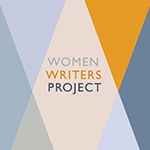
The Women Writers Project is a long-term research project devoted to early modern women’s writing and electronic text encoding. The project's goal is to bring texts by pre-Victorian women writers out of the archive and make them accessible to a wide audience of teachers, students, scholars, and the general reader. The project supports research on women’s writing, text encoding, and the role of electronic texts in teaching and scholarship.
As the publisher of Women Writers Online, the WWP now supports the work of innumerable faculty, students, and readers at hundreds of institutions from around the world, by providing access to rare materials by women that otherwise would go unread and untaught. The WWP annual conference, Women in the Archives, explores the connections between scholarly research and teaching, theories of the archive, and modes of digital representation. Through our exhibits we also offer opportunities for scholars to experiment with new modes of authoring and engagement with digital research tools.
The WWP has received generous support from many sources. The project was founded at Brown University in 1988 and received substantial support from the university during its formative years, benefitting from the strong tradition of digital humanities research embodied in the Scholarly Technology Group and later the library’s Center for Digital Scholarship. The project has also received grant funding from the National Endowment for the Humanities, The Andrew W. Mellon Foundation, and the Delmas Foundation. Starting in 1999, the project has been supported as well by licensing income from Women Writers Online, which makes it possible for the WWP to continue maintaining and expanding the WWO collection. In July 2013, the WWP moved to Northeastern University and is now supported there as part of the Northeastern Library’s Digital Scholarship Group
As part of the Digital Scholarship Group at Northeastern University, the WWP staff are engaged in ongoing research into the technical and theoretical challenges of this work, and we share our expertise both at Northeastern and within the larger digital humanities community through papers, consultation, training workshops, and contributions to standards development. Our published materials and resources for teaching are all freely available to the public. The project also offer seminars and consultancy services to other projects.

